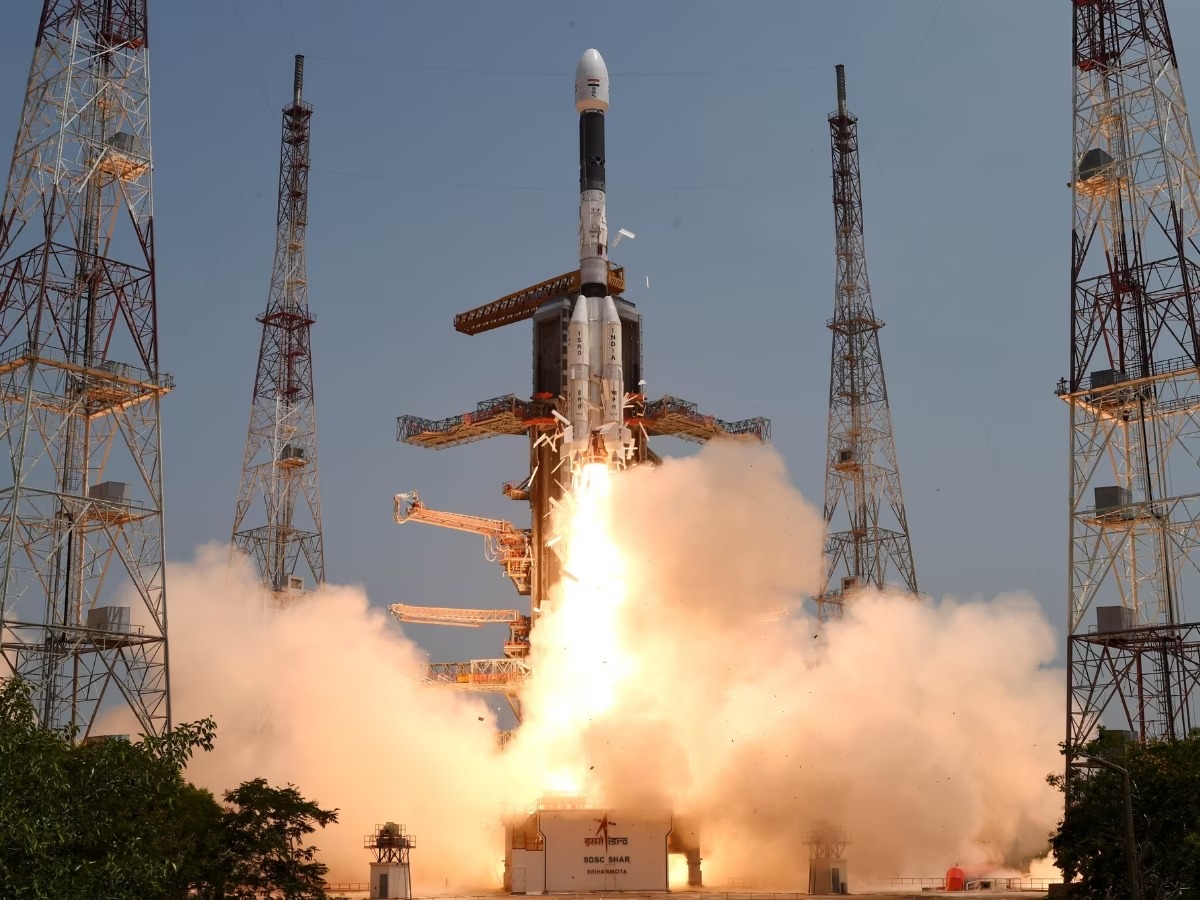India’s latest weather satellite is slated to be launched on Saturday from Sriharikota in Andhra Pradesh aboard the Geosynchronous Satellite Launch Vehicle, with liftoff scheduled for 5:35 pm. The rocket chosen for this mission has earned the nickname “naughty boy” within the Indian space agency.
Read also:US claims Russia is developing anti-satellite capability
Performance History of GSLV and Comparisons with Other ISRO Rockets
The Geosynchronous Satellite Launch Vehicle (GSLV), set to launch the INSAT-3DS satellite from Sriharikota, Andhra Pradesh, at 5:35 pm on Saturday, earned the nickname “naughty boy” due to its less-than-ideal performance history. According to a former chairman of the Indian Space Research Organization (ISRO), the GSLV has experienced failures in six out of its 15 flights, resulting in a failure rate of 40 percent. Despite a successful launch on May 29, 2023, the GSLV faced a setback in its previous launch on August 12, 2021. In contrast, the GSLV’s larger counterpart, the Launch Vehicle Mark-3 (nicknamed ‘Bahubali rocket’), has completed seven flights with a perfect success rate. The Polar Satellite Launch Vehicle (PSLV), ISRO’s reliable workhorse, boasts an impressive 95 percent success rate, with only three failures in 60 launches.
Read also:Army Opens Fire At Pak Drones Spotted Near Border
Key Details about GSLV and INSAT-3DS Satellite
The GSLV, a three-stage rocket measuring 51.7 meters in length, with a liftoff mass of 420 tonnes, utilizes an indigenous cryogenic engine. ISRO intends to retire the GSLV after a few additional launches. The satellite scheduled for launch on Saturday, known as INSAT-3DS, holds significant importance as it will significantly enhance India’s weather and climate monitoring capabilities. According to ISRO, the Ministry of Earth Sciences fully financed the construction of this third-generation upgraded meteorological satellite, weighing 2,274 kg and costing approximately ₹480 crore.
Read also:Ishan Kishan Likely to Sit Out Another Ranji Trophy Fixture
ISRO’s Focus on Enhanced Weather Monitoring and Forecasting
ISRO officials state that they specifically engineered the upcoming weather monitoring satellite to enhance meteorological observations and monitor both land and ocean surfaces, thereby improving weather forecasting capabilities and facilitating disaster warnings. India has leveraged these satellite assets to bolster the accuracy of its weather forecasts, a development that has frequently contributed to life-saving measures. Dr. M Ravichandran, a distinguished expert in atmosphere and ocean sciences serving as the secretary of the Ministry of Earth Sciences, hailed Indian weather satellites as a transformative force, highlighting their crucial role in enabling precise cyclone forecasts.
Read also:Paytm Payments Bank goes missing from list of 32 banks for buying Fastags

